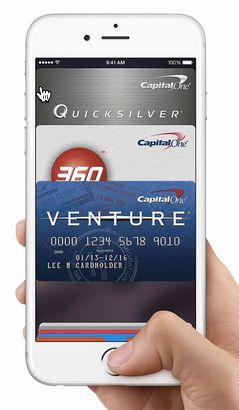 Card reissues after a data breach, or lost/stolen situation, are annoying for cardholders. But it’s even worse for the issuer who has to pay for a new card, hound the customer to activate it, handle customer-service calls, and then risk losing recurring revenues from now-broken automated pre-authorized charges.
Card reissues after a data breach, or lost/stolen situation, are annoying for cardholders. But it’s even worse for the issuer who has to pay for a new card, hound the customer to activate it, handle customer-service calls, and then risk losing recurring revenues from now-broken automated pre-authorized charges.
So kudos to Capital One for taking an important step in solving this problem.
Earlier this week I received a new card and number from Capital One, presumably because my card had been involved in a breach. I am not aware of any unauthorized attempts to use it.
In a followup email this morning, the giant issuer reminded me to activate the new card. That’s a fairly typical technique these days. But the help didn’t end there. The bank provided a list of likely merchants where I may need to update card info to avoid the charge being denied (see screenshot below).
That’s great customer service and something I’ve not seen before. But of course I want more. The list I received was primarily merchants where I made one-off payments. Who has a recurring charge with United Airlines? So it needs to be scrubbed better. And it would help to include the most recent charge amount and number of charges to help identify actual recurring charges.
And ultimately, it would be even better if the process was semi-automatic. Let me respond to the email with a simple yes/no response for each merchant indicating if I wanted them to continue the automatic billing under the new card number. Or at least provide links to reduce the friction of the task.
But all-in-all, a welcome improvement.
———
Capital One email to cardholder (19 June 2015)

